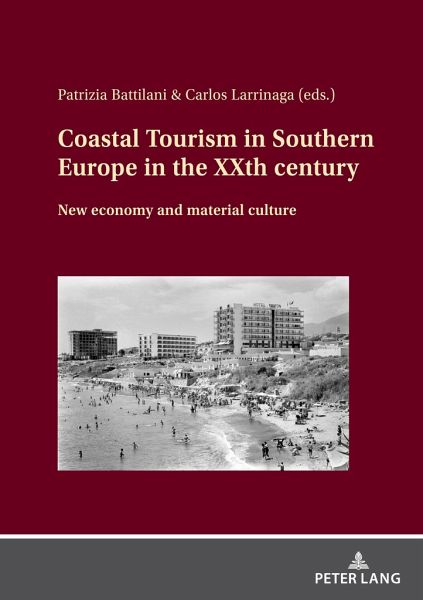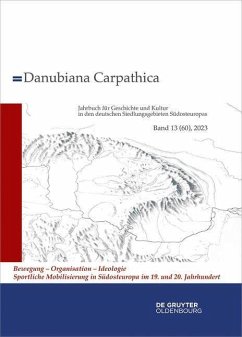
Coastal Tourism in Southern Europe in the XXth century
New economy and material culture
Herausgegeben: Battilani, Patrizia; Larrinaga Rodríguez, Carlos
Versandkostenfrei!
Versandfertig in 6-10 Tagen
44,50 €
inkl. MwSt.

PAYBACK Punkte
0 °P sammeln!
Tourism constitutes one of the most important economic and social activities incontemporary societies. This has not always been the case and, in fact, we must placethe birth of modern tourism and its material culture in the transition from the 19thto the 20th century. This book deals with this tourism in a very specific geographicalspace, the countries of southern Europe, and on a chronology centered on the 20thcentury and focusing on the different pillars of sustainability: economic, social andenvironmental.The aim of this book is to analyze how the maritime and coastal tourism gave birthto a...
Tourism constitutes one of the most important economic and social activities in
contemporary societies. This has not always been the case and, in fact, we must place
the birth of modern tourism and its material culture in the transition from the 19th
to the 20th century. This book deals with this tourism in a very specific geographical
space, the countries of southern Europe, and on a chronology centered on the 20th
century and focusing on the different pillars of sustainability: economic, social and
environmental.
The aim of this book is to analyze how the maritime and coastal tourism gave birth
to a new economy and material culture during the Twentieth century, focusing on
different countries and regions in southern Europe. Today this part of Europe is still
the most important tourist destination in the world.
contemporary societies. This has not always been the case and, in fact, we must place
the birth of modern tourism and its material culture in the transition from the 19th
to the 20th century. This book deals with this tourism in a very specific geographical
space, the countries of southern Europe, and on a chronology centered on the 20th
century and focusing on the different pillars of sustainability: economic, social and
environmental.
The aim of this book is to analyze how the maritime and coastal tourism gave birth
to a new economy and material culture during the Twentieth century, focusing on
different countries and regions in southern Europe. Today this part of Europe is still
the most important tourist destination in the world.














